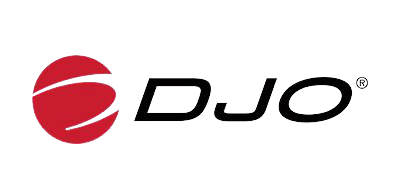Report Summary
Summary
A self-organizing Network (SON) is an automation technology designed to make the planning, configuration, management, optimization and healing of mobile radio access networks simpler and faster.
The major market for self-organizing network is in the North America, but APAC and RoW are growing at a highest CAGR.
In 2020, the global Self-Organizing Network market size was 4820 million US$ and it is expected to reach 10800 million US$ by the end of 2027, with a CAGR of 10.6% between 2021 and 2027.
This report studies the Self-Organizing Network market size by players, regions, product types and end industries, history data 2017-2020 and forecast data 2020-2027; This report also studies the global market competition landscape, market drivers and trends, opportunities and challenges, risks and entry barriers, sales channels, distributors and Porter's Five Forces Analysis.
This report focuses on the global top players, covered
Cisco
Ericsson
Nokia
NEC
Huawei
Airhop Communications
Amdocs
Cellwize
Ascom
Radisys
Market segment by Regions/Countries, this report covers
North America
Europe
China
Rest of Asia Pacific
Central & South America
Middle East & Africa
Market segment by Type, the product can be split into
D-SON
C-SON
Hybrid SON
Market segment by Application, the market can be split into
E-Commerce and Advertising
Media and Entertainment
Education
Government
Healthcare and Others
The study objectives of this report are:
To study and forecast the market size of Self-Organizing Network in global market.
To analyze the global key players, SWOT analysis, value and global market share for top players.
To define, describe and forecast the market by type, end use and region.
To analyze and compare the market status and forecast among global major regions.
To analyze the global key regions market potential and advantage, opportunity and challenge, restraints and risks.
To identify significant trends and factors driving or inhibiting the market growth.
To analyze the opportunities in the market for stakeholders by identifying the high growth segments.
To strategically analyze each submarket with respect to individual growth trend and their contribution to the market
To analyze competitive developments such as expansions, agreements, new product launches, and acquisitions in the market.
To strategically profile the key players and comprehensively analyze their growth strategies.
In this study, the years considered to estimate the market size of Self-Organizing Network are as follows:
History Year: 2017-2020
Base Year: 2020
Estimated Year: 2020
Forecast Year 2021 to 2027
For the data information by region, company, type and application, 2020 is considered as the base year. Whenever data information was unavailable for the base year, the prior year has been considered.
Key Stakeholders
Raw material suppliers
Distributors/traders/wholesalers/suppliers
Regulatory bodies, including government agencies and NGO
Commercial research & development (R&D) institutions
Importers and exporters
Government organizations, research organizations, and consulting firms
Trade associations and industry bodies
End-use industries
Available Customizations
With the given market data, EternityInsights offers customizations according to the company's specific needs. The following customization options are available for the report:
Further breakdown of Self-Organizing Network market on basis of the key contributing countries.
Detailed analysis and profiling of additional market players.
Table Of Contents
Table of Contents
Self-Organizing Network Market Report by Company, Regions, Types and Applications, Global Status and Forecast to 2025
1 Industry Overview of Self-Organizing Network
1.1 Self-Organizing Network Market Overview
1.1.1 Self-Organizing Network Product Scope
1.1.2 Market Status and Outlook
1.2 Global Self-Organizing Network Market Size and Analysis by Regions
1.2.1 North America
1.2.2 Europe
1.2.3 China
1.2.4 Rest of Asia Pacific
1.2.5 Central & South America
1.2.6 Middle East & Africa
1.3 Self-Organizing Network Market by Type
1.3.1 D-SON
1.3.2 C-SON
1.3.3 Hybrid SON
1.4 Self-Organizing Network Market by End Users/Application
1.4.1 E-Commerce and Advertising
1.4.2 Media and Entertainment
1.4.3 Education
1.4.4 Government
1.4.5 Healthcare and Others
2 Global Self-Organizing Network Competition Analysis by Players
2.1 Self-Organizing Network Market Size (Value) by Players (2018 and 2019)
2.2 Competitive Status and Trend
2.2.1 Market Concentration Rate
2.2.2 Product/Service Differences
2.2.3 New Entrants
2.2.4 The Technology Trends in Future
3 Company (Top Players) Profiles
3.1 Cisco
3.1.1 Company Profile
3.1.2 Main Business/Business Overview
3.1.3 Products, Services and Solutions
3.1.4 Self-Organizing Network Revenue (Value) (2017-2020)
3.1.5 Recent Developments
3.2 Ericsson
3.2.1 Company Profile
3.2.2 Main Business/Business Overview
3.2.3 Products, Services and Solutions
3.2.4 Self-Organizing Network Revenue (Value) (2017-2020)
3.2.5 Recent Developments
3.3 Nokia
3.3.1 Company Profile
3.3.2 Main Business/Business Overview
3.3.3 Products, Services and Solutions
3.3.4 Self-Organizing Network Revenue (Value) (2017-2020)
3.3.5 Recent Developments
3.4 NEC
3.4.1 Company Profile
3.4.2 Main Business/Business Overview
3.4.3 Products, Services and Solutions
3.4.4 Self-Organizing Network Revenue (Value) (2017-2020)
3.4.5 Recent Developments
3.5 Huawei
3.5.1 Company Profile
3.5.2 Main Business/Business Overview
3.5.3 Products, Services and Solutions
3.5.4 Self-Organizing Network Revenue (Value) (2017-2020)
3.5.5 Recent Developments
3.6 Airhop Communications
3.6.1 Company Profile
3.6.2 Main Business/Business Overview
3.6.3 Products, Services and Solutions
3.6.4 Self-Organizing Network Revenue (Value) (2017-2020)
3.6.5 Recent Developments
3.7 Amdocs
3.7.1 Company Profile
3.7.2 Main Business/Business Overview
3.7.3 Products, Services and Solutions
3.7.4 Self-Organizing Network Revenue (Value) (2017-2020)
3.7.5 Recent Developments
3.8 Cellwize
3.8.1 Company Profile
3.8.2 Main Business/Business Overview
3.8.3 Products, Services and Solutions
3.8.4 Self-Organizing Network Revenue (Value) (2017-2020)
3.8.5 Recent Developments
3.9 Ascom
3.9.1 Company Profile
3.9.2 Main Business/Business Overview
3.9.3 Products, Services and Solutions
3.9.4 Self-Organizing Network Revenue (Value) (2017-2020)
3.9.5 Recent Developments
3.10 Radisys
3.10.1 Company Profile
3.10.2 Main Business/Business Overview
3.10.3 Products, Services and Solutions
3.10.4 Self-Organizing Network Revenue (Value) (2017-2020)
3.10.5 Recent Developments
4 Global Self-Organizing Network Market Size by Type and Application (2017-2020)
4.1 Global Self-Organizing Network Market Size by Type (2017-2020)
4.2 Global Self-Organizing Network Market Size by Application (2017-2020)
4.3 Potential Application of Self-Organizing Network in Future
4.4 Top Consumer/End Users of Self-Organizing Network
5 North America Self-Organizing Network Development Status and Outlook
5.1 North America Self-Organizing Network Market Size (2017-2020)
5.2 North America Self-Organizing Network Market Size and Market Share by Players (2018 and 2019)
6 Europe Self-Organizing Network Development Status and Outlook
6.1 Europe Self-Organizing Network Market Size (2017-2020)
6.2 Europe Self-Organizing Network Market Size and Market Share by Players (2018 and 2019)
7 China Self-Organizing Network Development Status and Outlook
7.1 China Self-Organizing Network Market Size (2017-2020)
7.2 China Self-Organizing Network Market Size and Market Share by Players (2018 and 2019)
8 Rest of Asia Pacific Self-Organizing Network Development Status and Outlook
8.1 Rest of Asia Pacific Self-Organizing Network Market Size (2017-2020)
8.2 Rest of Asia Pacific Self-Organizing Network Market Size and Market Share by Players (2018 and 2019)
9 Central & South America Self-Organizing Network Development Status and Outlook
9.1 Central & South America Self-Organizing Network Market Size (2017-2020)
9.2 Central & South America Self-Organizing Network Market Size and Market Share by Players (2018 and 2019)
10 Middle East & Africa Self-Organizing Network Development Status and Outlook
10.1 Middle East & Africa Self-Organizing Network Market Size (2017-2020)
10.2 Middle East & Africa Self-Organizing Network Market Size and Market Share by Players (2018 and 2019)
11 Market Forecast by Regions, Type and Application (2021-2027)
11.1 Global Self-Organizing Network Market Size (Value) by Regions (2021-2027)
11.1.1 North America Self-Organizing Network Revenue and Growth Rate (2021-2027)
11.1.2 Europe Self-Organizing Network Revenue and Growth Rate (2021-2027)
11.1.3 China Self-Organizing Network Revenue and Growth Rate (2021-2027)
11.1.4 Rest of Asia Pacific Self-Organizing Network Revenue and Growth Rate (2021-2027)
11.1.5 Central & South America Self-Organizing Network Revenue and Growth Rate (2021-2027)
11.1.6 Middle East & Africa Self-Organizing Network Revenue and Growth Rate (2021-2027)
11.2 Global Self-Organizing Network Market Size (Value) by Type (2021-2027)
11.3 Global Self-Organizing Network Market Size by Application (2021-2027)
12 Self-Organizing Network Market Dynamics
12.1 Self-Organizing Network Market Opportunities
12.2 Self-Organizing Network Challenge and Risk
12.2.1 Competition from Opponents
12.2.2 Downside Risks of Economy
12.3 Self-Organizing Network Market Constraints and Threat
12.3.1 Threat from Substitute
12.3.2 Government Policy
12.3.3 Technology Risks
12.4 Self-Organizing Network Market Driving Force
12.4.1 Growing Demand from Emerging Markets
12.4.2 Potential Application
13 Market Effect Factors Analysis
13.1 Technology Progress/Risk
13.1.1 Substitutes
13.1.2 Technology Progress in Related Industry
13.2 Consumer Needs Trend/Customer Preference
13.3 External Environmental Change
13.3.1 Economic Fluctuations
13.3.2 Other Risk Factors
14 Research Finding/Conclusion
15 Appendix
Methodology
Analyst Introduction
Data Source












